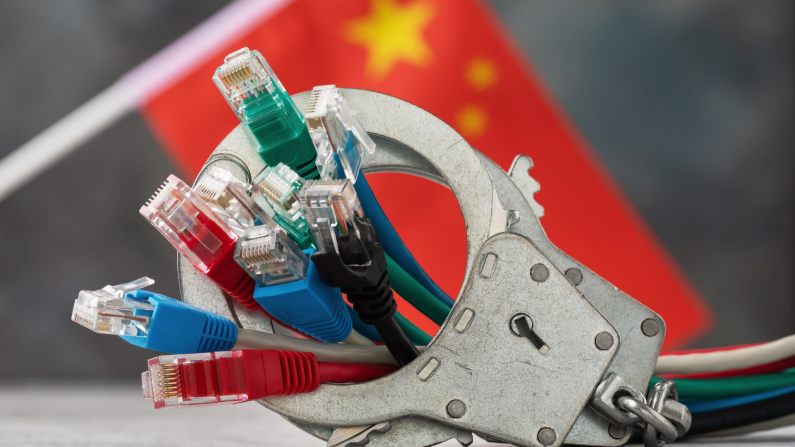The Chinese IT market is a real El Dorado for ambitious companies dreaming of global success. The numbers speak for themselves: China’s digital economy exceeds $7 trillion, and the number of internet users has reached 1.1 billion.
The growth of e-commerce, mobile technologies, and artificial intelligence creates incredible opportunities for foreign companies ready to adapt to local conditions and offer innovative solutions.
China is one of the fastest-growing e-commerce markets in the world. According to eMarketer, in 2025, retail online sales in China will reach $2.7 trillion, accounting for more than half of the global e-commerce market. Mobile payments have also become widespread in China: more than 80% of internet users use mobile applications to pay for goods and services. These trends create huge opportunities for foreign companies specializing in e-commerce and financial technology.
However, behind the bright prospects lie serious challenges. The Chinese IT market is a complex and competitive environment, where its own rules of the game apply. Local companies have a huge advantage in understanding consumer preferences, cultural nuances, and regulatory requirements. To succeed, foreign businesses need to take these factors into account and develop a strategy based on a deep analysis of the market and adaptation to local conditions. In another of our articles, we also talked in detail about the specifics of the IT industry in China and the features of the work of local companies from the inside, which you will also have to match if you decide to join them. And yes, among themselves, the Chinese call foreigners “laowai,” which implies a person who speaks Chinese poorly and is not familiar with traditions. Don’t want to be a laowai and want to become one of your own among businessmen in China? Then this article is for you!
Marketing the Chinese Way and the Mentality of the Chinese Consumer

Cultural characteristics play a huge role in the success of a foreign business in any country, but if the difference in mentalities between, say, the US and Europe is easily understood and overcome, then between the West and China there is a real cultural abyss, and it cannot be crossed in one jump.
So, first of all, the Chinese consumer differs from the Western one in their values, preferences, and expectations. For example, the Chinese attach great importance to the concept of “guanxi” – personal connections and relationships. Establishing trusting relationships with partners, clients, and government agencies is a key success factor in China. It is also important to consider the peculiarities of the Chinese language and use it in marketing materials and communications with customers. The translation should not only be accurate but also take into account cultural nuances and local idioms.
Another important aspect is the Chinese philosophy, which literally permeates all spheres of life in China. Wherever it may be, from personal life to corporate life, the Chinese value harmony, respect for elders, and collectivism. In business, it is important to show respect for partners and customers, avoid confrontation, and strive for mutually beneficial solutions. It is also necessary to take into account the peculiarities of Chinese business etiquette, such as exchanging business cards, using certain colors and symbols, as well as the rules of conduct at business meetings and receptions.
Starbucks has successfully conquered the Chinese market by adapting its menu to local preferences, offering tea drinks and traditional Chinese pastries. The company has also created a cozy atmosphere in its coffee shops, which corresponds to the Chinese ideas of comfort and communication, for example, placing more tables in the halls for noisy companies, with which the Chinese most often gather in cafes. Starbucks also actively uses the local WeChat application to interact with customers and conduct marketing campaigns.
Successful marketing in China, in principle, requires adaptation to local platforms and communication channels. The thing is that Western social networks and search engines, such as Facebook, Twitter, and Google, are blocked in China. Instead, local platforms such as WeChat, Weibo, Baidu, and Douyin (TikTok) dominate. Therefore, foreign businesses need to master these platforms and use them to promote their goods and services.
WeChat is not just a messenger, but an entire ecosystem that combines many functions and services. Companies can create official accounts in WeChat, publish content, communicate with customers, conduct advertising campaigns, and even sell goods through the built-in store. Weibo is the Chinese analogue of Twitter, where users exchange short messages and share opinions. Baidu is the largest search engine in China, which plays an important role in attracting traffic to the company’s website.
The content that a foreign business publishes must not only be translated into Chinese but also adapted to local cultural characteristics and consumer preferences. It is important to use relevant images, symbols, and stories to establish an emotional connection with the Chinese audience. It is also necessary to take into account the peculiarities of Chinese humor and avoid topics that may be perceived as offensive or disrespectful.
An example of successful marketing localization is Nike’s “Just Do It” campaign. Nike adapted its slogan to Chinese culture, using the phrase “Just Do It” in the context of Chinese philosophy of self-improvement and overcoming difficulties. The company also created commercials featuring Chinese athletes and celebrities who tell stories about achieving goals and overcoming obstacles. This campaign allowed Nike to establish a strong connection with Chinese consumers and increase brand awareness.
On the Inside: High Competition and Digital Authoritarianism

When considering scaling your business and moving it to China, keep in mind: the Chinese IT market is as dense as the Shanghai subway during rush hour. Local companies have a huge advantage in understanding the market, having strong ties with government agencies, and access to a huge number of users. Foreign businesses need to carefully study competitors and develop a unique selling proposition to stand out from other players.
The regulation of the IT industry in China is strict and constantly changing. The government exercises strict control over the internet and content, introducing censorship and restricting access to certain resources. Foreign companies need to comply with local laws and regulations, as well as cooperate with government agencies in matters of ensuring security and controlling information.
“Digital authoritarianism” has a significant impact on the activities of IT companies in China. For example, Google, Facebook, and Twitter are blocked in China, and local social networks and messengers are subject to strict censorship. Foreign companies need to adapt to this situation and use alternative platforms and communication channels to interact with the Chinese audience.
For example, even such a giant as Apple has faced certain difficulties in China due to the regulation of the IT industry. Apple was forced to remove a number of applications from its App Store that did not meet the requirements of Chinese censorship. However, the company was able to maintain its position in the market by cooperating with the government and complying with local laws and regulations. Apple is also actively investing in research and development in China to create products and services that meet the needs of Chinese consumers.
The Chinese IT market, with all its scale, unique cultural characteristics, and strict regulation, presents both enormous opportunities and serious challenges for foreign companies. Success here depends not only on the quality of the product but also on a deep understanding of local specifics, readiness for comprehensive adaptation - from marketing to corporate culture. Those who can overcome these barriers, build trusting relationships, and offer truly relevant solutions will gain access to the most dynamic and voluminous digital market in the world, opening new horizons for growth and innovation. The Chinese market is not just another point on the map of global expansion, it is a unique ecosystem that requires an individual approach and respect for its rules.
Share this with your friends!






Be the first to comment
Please log in to comment